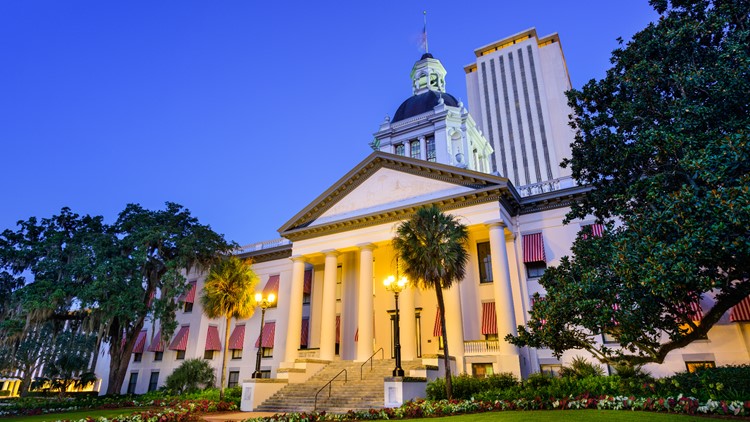TALLAHASSEE, Fla. — Florida's lawmakers have officially finalized the upcoming fiscal year's budget to the tune of $101.5 billion, with $6 billion being left in state reserves.
But before a vote on whether to cut the multi-billion dollar check for the state, lawmakers must observe a required 72-hour "cooling off" period. That leaves Friday, the final day of the legislative session, for voting to take place.
According to the Senate, the budget also accounts for $6.7 billion of the $10 billion in anticipated non-recurring federal pandemic relief funds "which will further bolster state reserves."
“I do believe we will continue to see some fluctuation and some uncertainty as our economy recovers. With this reality in mind, our budget utilizes available federal funding to makes some significant nonrecurring investments in key infrastructure priorities that will create jobs and further bolster Florida’s recovering economy,” Senate President Wilton Simpson (R-Trilby) said, in part, of the budget.
The budget spans 434 pages and hits an expansive list of topics, allotments and requirements on how the funding is dolled out.
Floridians can see entries for things like an increase to Visit Florida for tourism hits dished out by the pandemic, to aircraft maintenance, and everything in between.
But what are some of the larger ticket items in this year's budget?
Bonuses for first responders and teachers
Gov. Ron DeSantis is asking for $1,000 bonuses for educators and first responders as a 'thank you' for all their work during the COVID-19 pandemic.
The governor previously outlined the funding for teachers and school principals will come from the ESSER funds, while bonuses for first responders will dip into federal funding received as a result of the pandemic.
If passed, the budget would allocate around $216 million to put money in the pockets of nearly 3,600 principals and 180,000 full-time classroom teachers. First responders would have their funds administered by the Florida Department of Economic Opportunity at around $208 million total.
Minimum Wage
A lump sum of more than $94 million for employee compensation and benefits includes allocating money to ensure an increase in the minimum wage for Floridians.
Under the budget, all eligible state employees' pay would be bumped to $13 per hour started July 1, 2021. The adjustment would put someone who works 40 hours a week just above what the federal government considers a poverty income for a family of four.
Each state agency is also required to develop a plan that includes the estimated costs to implement a $14-$15 minimum wage. Those plans are due by November 1, 2021.
Teacher salaries
Out of the General Revenue Fund, $500 million in recurring funds will be provided for the Teachers Salary Increase Allocation.
Of that, the budget outlines 80-percent will be provided to school districts to increase the minimum base salary for full-time classroom teachers.
Educators would also be required to be paid a base salary no less than $47,500.
Child Welfare System funding
Three separate lump sums could be heading into the systems created to help protect children in Florida.
Funding would be used to implement child welfare best-practice initiatives like family-finding and to implement evidence-based prevention services "that meet the requirements of the federal Family First Transition Act."
The allocated funding comes in at around $44.2 million.
You can click here to dig further into the 2021-2022 fiscal budget.
What other people are reading right now:
- CDC relaxes guidelines for wearing masks outdoors
- Turnout low as Johnson & Johnson vaccine returns in Florida
- Biden to sign $15 minimum wage for federal contract workers
- Investigation: Derek Chauvin held a teenager down prone for 17 minutes
- Former Bucs, FSU linebacker Geno Hayes dies at 33
- Pandemic creates a plethora of mental health jobs
►Breaking news and weather alerts: Get the free 10 Tampa Bay app
►Stay In the Know! Sign up now for the Brightside Blend Newsletter



